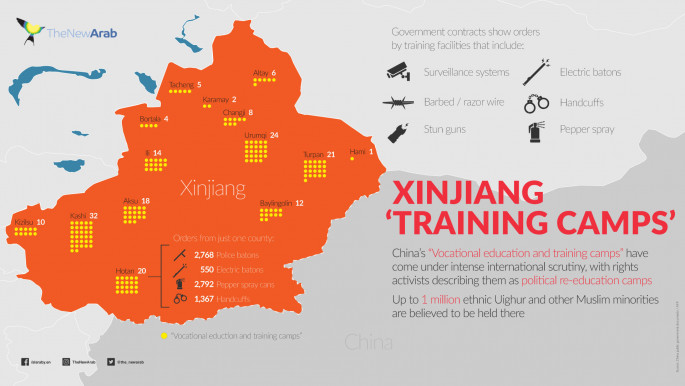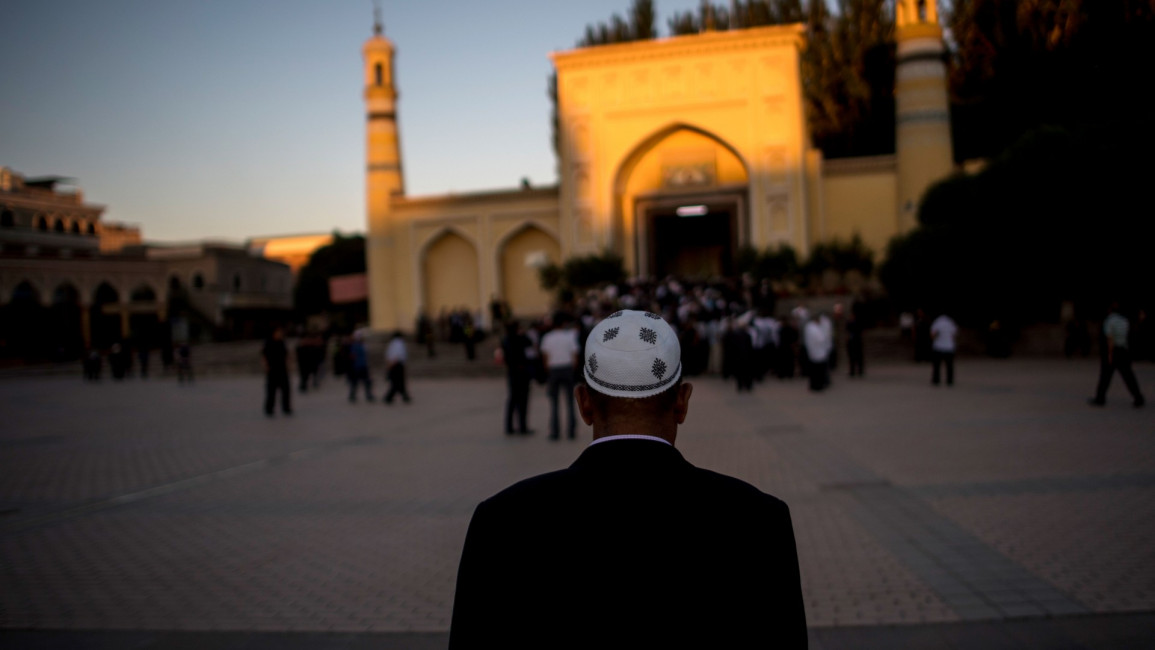Chinese police database details extensive monitoring of Uighur Muslims' activities
A massive Chinese police database obtained by The Intercept has shed further light on Beijing's large-scale surveillance of its Uighur and Turkic-speak Muslim minority groups.
The report, published on Friday, bolsters previous findings on how Chinese authorities collect millions of text messages, phone contacts, call records and banking data of Muslims in the country's northwestern Xinjiang province for its 'counter-extremism' efforts.
The database, thought to be maintained and used by the Ürümqi City Public Security Bureau and the broader Xinjiang Public Security Bureau, details one case in which a WeChat group of around 200 Uighurs, Kazakhs and Kyrgyz was homed in on by security agencies after offering travel tours to its members.
An order issued by Chinese authorities said that many of the group's members were "relatives of incarcerated people" and "of concern".
The order added that the WeChat group needed "major attention" due to intelligence revealing that "that there is a tendency for relatives of [extremist] people to gather".
It ordered that officers "investigate immediately. Find out the background of the people who organize 'free travel', their motivation, and the inner details of their activities."
Twitter Post
|
As a result, a Uighur man with no connection to the group was rounded up and place under surveillance despite police noting that he "has good behaviour and we do not have any suspicion".
According to the notes seen by The Intercept, police decided to "control and monitor" the man based upon the religious activities of his eldest sister some months earlier.
Police records noted that the man's sister had invited another Uighur couple to join a religious discussion group on the Tencent QQ messaging app.
Police records noted that the other couple logged onto the group every day from 7 a.m. to 11:30 p.m., and that the husband had stopped smoking and drinking, and the wife began wearing modest clothes.
The couple would later be sent to a "re-education camp", while the fate of the elder sister and her husband remained unknown.
Such reports add to growing of evidence of everyday repression faced by Muslim minorities in Xinjiang, as well as how everyday Muslim religious activity is viewed by Chinese authorities as markers of extremism.
The database also contains evidence suggesting that China's "Physicals for All" health programme fed into state surveillance of Muslim groups.
In other sections, it revealed extensive police use of a tool to download data from mobile phones, known as the "anti-terrorism sword", as well as monitoring of the mobile messaging app WeChat.
Rights groups say at least one million Uighurs and other Turkic-speaking Muslims have been incarcerated in camps in Xinjiang.
People have been subjected to torture, sterilisation and political indoctrination in addition to forced labour as part of an assimilation campaign in a region whose inhabitants are ethnically and culturally distinct from the Han Chinese majority.
China denies wrongdoing and contends that its camps are vocational training centres meant to reduce the allure of Islamic extremism in the wake of attacks.
Follow us on Facebook, Twitter and Instagram to stay connected



